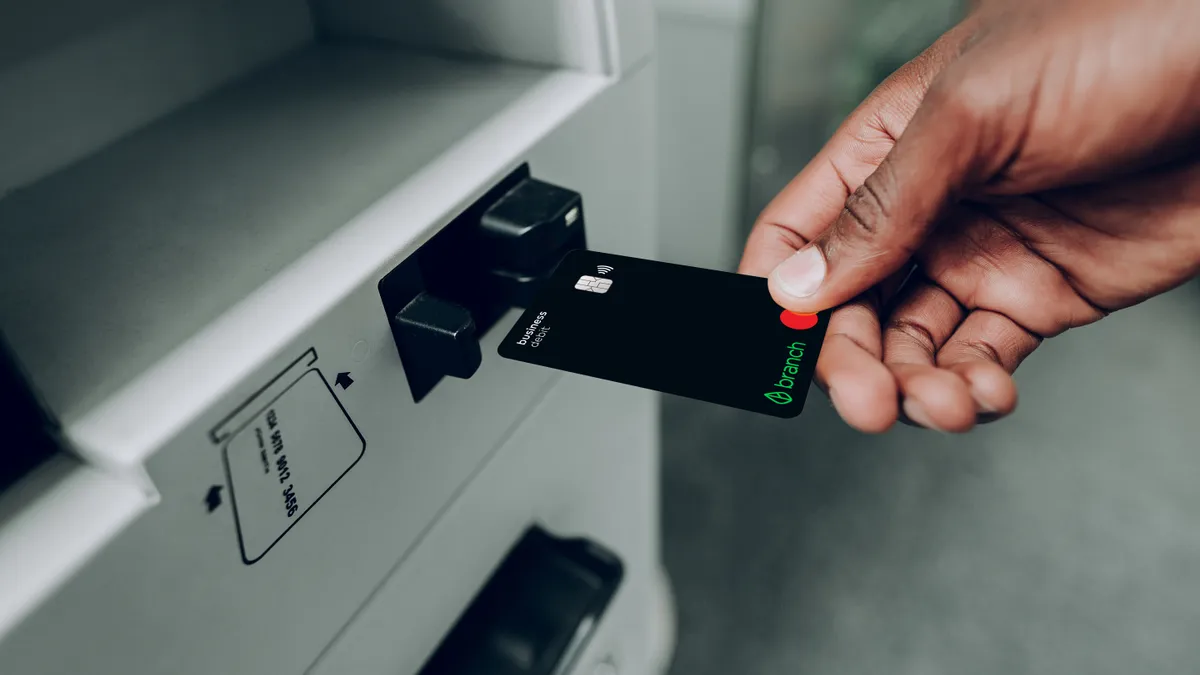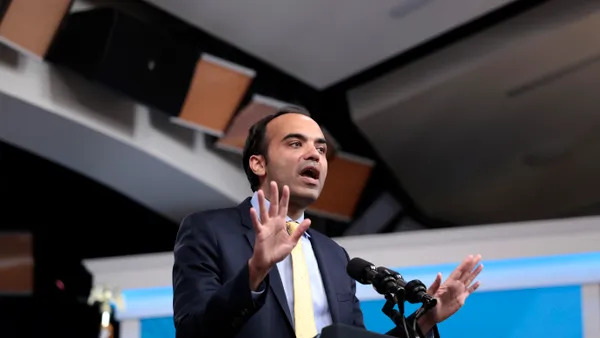Branch, which provides wage payments services, has been lining up more clients lately with help from signing on ride share company Uber Technologies last year.
Those new customers include Kansas City-based Bungii, a same-day bulk delivery service, and Cincinnati-based shipping company Frayt. They each tapped Branch in the past six months to facilitate faster worker payments.
Branch is also in talks with other potential customers in the logistics and last-mile delivery sector, Branch CEO and founder Atif Siddiqi said during a Tuesday interview. “Uber’s obviously a great marquee customer” that has sparked a surge in interest for Branch’s services among other regional, last-mile delivery employers, Siddiqi said.
Minneapolis-based Branch began working with Uber Freight in 2021, and launched with Uber on the driver side of the business in September of last year. Branch is now the only entity providing such services for all of Uber’s U.S. operations, unseating Green Dot, which ran into trouble with that contract.
“We were working with Uber Freight, which was their long-haul trucking division of Uber, and as a result of our work there, we built a relationship there with Uber Driver,” Siddiqi said. The companies “realized that there was a need for faster driver payments, very similar to the system we have with Uber Freight,” he said. Uber also tapped Branch to create a custom cashback program for its drivers’ expenses.
Green Dot disclosed last August that it was in a dispute with Uber, for which it had been providing banking services. In its last quarterly filing in November, Green Dot said it was “involved in litigation with Uber arising from a dispute over their obligations under our agreements.”
Branch, founded in 2015, started with a focus on earned wage access, but has since expanded its offerings. “We really see more of like banking-as-a-service providers as our competition,” Siddiqi said.
Branch’s core offering is its digital wallet, which acts as a fee-free checking account for employees of companies and contractors using Branch services. The wallet “opened up the aperture to other worker payment use cases where people would need their money faster,” he said.
That includes paying independent contractors via a digital wallet after each work shift is completed, and making digital tip payments available for restaurant and hospitality workers, Siddiqi said.
With EWA, Branch is plugged into the payroll system, fronting employees the money and then recouping funds through a payroll deduction on payday. With payments to independent contractors or tips to workers, Branch passes along the payments on the same day they’re made to the business, often meaning the workers don’t have to wait.
Siddiqi declined to say what Branch’s revenue was last year. The company is privately-held, and has raised $133 million in venture capital, including $75 million in March 2022, he said. That injection of funds has put the company on solid footing, and it doesn’t currently plan to raise more capital this year, the CEO said. “If we do, it would be opportunistically, to grow faster,” Siddiqi added. Branch employs about 160 of its own workers.
The company generates revenue when money is spent from its wallet, by taking a cut of interchange fees. It also charges end-users a fee, ranging from $2.99 to $4.99, for a push-to-card transfer. The company works with fintech Marqeta to issue cards tied to its digital wallet.
Branch currently has about 500 employer customers, and the company’s ability to power contractor payments drove much of its customer growth last year, Siddiqi said.
Companies such as Uber are looking for a streamlined approach to worker payouts, and those workers want to get paid faster. Siddiqi sees a need for that offering in other sectors as well. Branch is targeting growth this year in the healthcare, manufacturing, hospitality and retail markets, he said.
Clarification: This story has been updated to make clear that Branch services are offered to employees as well as contractors of companies.












